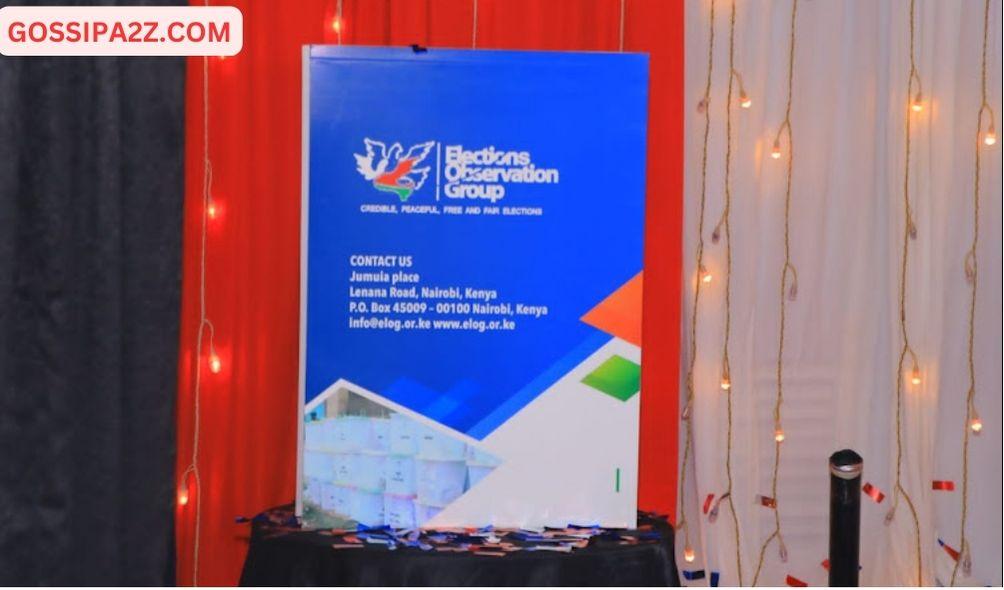Report: IEBC trust level low in Nyanza at 63 percent(List)
Nyanza recorded the lowest trust in how the Independent Electoral and Boundaries Commission conducted the 2022 general election, a report by Elections Observation Group shows.
The report released on Wednesday indicates that 63 percent of residents lack trust in the body with only 17 percent having confidence in it.
Central had the highest level of trust at 42 percent with 26 percent of the respondents in the region saying the commission cannot conduct free, fair, and credible elections.
Rift Valley followed with the highest level at 42 percent followed by Eastern (27 percent), and North Eastern (26 percent).
“Some respondents thought that IEBC was responsible for the suspicion, acrimony, hostility, and pockets of violence that ensued following the disunity they displayed at the 11th hour preceding the announcement of the final election results,” reads the report.
Respondents, the report says, suggested that the problems in the entire electoral management process including results announcement were due to external and internal interference in the work of IEBC.

“Why did they take so long to tally and announce presidential results? Why were numbers different? It “wasn’t fair, someone had been bought,” the report quotes a respondent from Mombasa identified as Juma.
Coast and Western had a 26 percent level of trust with 57 percent and 49 percent respectively having no confidence in the Commission.
ALSO READ:
- IMF advises Ruto on How To Introduce New Taxes Without Kenyans Resisting
- Wetangula Suspends Ruto’s Education Reforms
- Eric Maigo’s murder: Suspect detained for 21 days
Nairobi had 59 percent of the respondents saying they have no trust in the body and a 22 percent level of trust.
Common electoral offenses witnessed were voter bribery at 41 percent, rigging (22 percent), and electoral and violence (20 percent).
Election fraud was minimal with cases reported at 0.3 percent and voter suppression (0.2 percent).
“About regions, respondents predominantly identified voter bribery as a significant electoral offense in Rift Valley (44 percent), Eastern (44 percent), and Coast (43 percent).
On the other hand, claims of rigging were prominent in Nairobi (32 percent), and Nyanza (30 percent) with younger candidates seeking to “unseat” long-serving ones, and the Coast (27 percent) where families seek political control.
Respondents from Eastern (24 percent) and North Eastern (21 percent) regions predominantly cited electoral violence as a major concern.
Voter bribery was rampant in rural areas 42 percent and urban (40 percent), while rigging was high in urban (24 percent) as compared to 20 percent in rural.
There was a similar rate of prevalence of electoral violence both in rural and urban at 19 percent.
ALSO READ:
- Kenyan Priest Arrested in US for Defiling Old Parishioner
- Ruto Promised The Dollar Drop To Ksh.115 ‘In A Month Or So’, Five Months Later, What Happened?
- UDA Senator Clarifies 106M Payout to Ruto-Raila Talk Team
The responses from the citizens were collected and triangulated from opinion surveys, focused group discussions (FGDs) from 10 ELOG regions, and key informant interviews targeting key individuals and institutions.
FDG is a qualitative research method and data collection technique in which a selected group of people discusses a given topic or issue in-depth, facilitated by a professional, external moderator.
The citizen assessment report of the 2022 electoral process dubbed ‘Vile Tunaicheki’ was conducted to consider whether the process met citizens’ expectations.
Those interviewed were people in the age bracket of 18-35 years.
Some of the major concerns raised by the respondents are trust deficits, suspicion, and mistrust, lack of inclusion and diversity, election fraud, and the high cost of elections.
Use of technology, gaps in election administration, management nonadherence to election laws and impunity are the other issues.
Report: IEBC trust level low in Nyanza at 63 percent(List)
